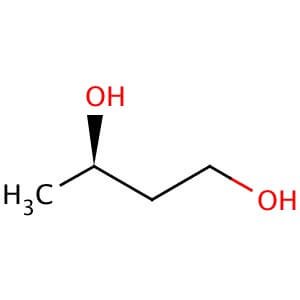Alcohol Substitute for Keto and Carnivore Dieters and Hangover Haters
Now that summer is fast approaching, and we will soon be attending Memorial Day festivities where alcohol is a normal offering I thought I would write a post about a new alternative to alcohol that contains no known toxins and does not produce a hangover. it sounds too good to be true, but it exists. I will cover it a bit later in this post, but I want to give a little background about the ketogenic diet because the drink arose from the low-carb culture.
The Ketogenic Diet
By now, most people are aware of The Ketogenic Diet, which is also called the keto diet. Although there are numerous variations, such as the carnivore diet, all require very low amounts of carbohydrates. The result is that the body must burn fat for energy. One of the main sources of energy on the ketogenic diet is β-hydroxybutyrate (βHB), which is classified as a ketone body, hence the name ketogenic diet, or keto diet for short. The other two ketones are acetate and Acetoacetate (AcAc). Acetoacetate is known as the mother of ketones as it is a precursor to βHB and acetone. However, it is less stable than BHB and easily converts into acetone. This leads to wasted energy as acetone is excreted via breath, where it can be measured. Some of acetoacetate also ends up in urine, which can also be measured using test strips. When in ketosis, acetone causes a fruity odor in your breath, known as "keto breath."
Advantages of Long-Term Ketosis
Exogenous Ketones
Another way to get into or stay in ketosis is by taking exogenous ketones. There are several different ones, namely ketone salts, ketone esters, ketone diols, aka ketone alcohols, and MCT oil. They are used for various reasons, such as jump-starting into ketosis, athletic performance, or remaining in ketosis while eating some carbs. If you want to know more about them and how to use them, click here. I want to focus on the ketone diol, also known as non-ethanol alcohol, specifically R-1,3-butanediol. I will talk more about it later.
Alcohol Sucks For the Health-Conscious
Many of us in the health community are stuck when it comes to get-togethers, especially informal parties where alcohol is the expected agent for breaking loose. It's hard enough sometimes to refuse offers to try some of the processed foods hosts and guests offer, but refusing alcohol seems to kill the mood outright when refused. As a result, I usually drink alcohol at such times so as not to be a killjoy, and I always regret it the next day. Additionally, drinking can kick us out of ketosis and mess with our metabolism.
Alcohol is Toxic
Whether it is beer, wine, or hard liquor, all drinking alcohol contains a chemical known as ethanol. Ethanol is well known to produce euphoria and loss of inhibition in lower amounts. It has a high potential for addiction and abuse. Ethanol is broken down into acetaldehyde, which is toxic. In higher amounts, it causes slurring of words, dizziness, loss of balance and coordination, poor judgment, fluctuating moods, impaired cognition, poor sleep, increased appetite, liver damage, nausea and vomiting, dehydration, bloating, nystagmus (eyes that flicker back and forth), headaches, and the dreaded hangover.
Ketone Alcohol
I mentioned ketone diols before, and they are also called ketone alcohols, although the term is used loosely. NASA discovered one called R-1,3-butanediol decades ago when they were looking into foods for the astronauts because it is converted into acetone and βHB for energy. Since these compounds are made naturally by the body, there is no toxicity. NASA, however, passed on utilizing it for nutrition as they found it had a poor taste. Rumor has it that the mice they fed it to started stumbling and bumping into the walls...
Ketohol
An existing company called KetoneAid recently launched a sister company called Hard Ketones LLC. They took advantage of the stumbling mice observation to produce an alternative to alcohol. They call their blend Ketohol. Ketohol is 1/2 βHB bonded to R 1,3 Butanediol, which is quickly absorbed and broken into βHB (the Maine ketone we burn) and R 1,3 Butanediol. R 1,3 Butanediol has a similar intoxicating effect to alcohol but is broken down into more βHB. The result is a clear-headed, euphoric, happy, relaxed, and disinhibited feeling. Amazingly, there is no hangover, and you remain in ketosis if you started there! Also, in moderate doses, it promotes better sleep. Like traditional alcohol, driving while intoxicated on ketohol is against the law, so don’t do it! Hard ketones provide 75 calories per serving, compared to hard seltzer, which offers 100 calories on average. However, because Hard Ketones provide additional ketones, drinkers feel satiated after one or two and usually cease drinking, which means that far fewer calories are ultimately consumed compared to alcoholic drinks like hard seltzer. I have tried all of the flavors, and there is no denying the bitterness of the concoction.
My Experience
I have settled on using the unflavored version and diluting it with club soda and grapefruit juice. To the producers’ credit, they warn about the taste. If you are interested in learning more about Hard Ketones, you can visit their website. The buzz wears off much more quickly than alcohol. I would say after two, I feel the buzz go away three or four hours later. I am left feeling calmer than normal. I also feel physically more relaxed. Sleep is definitely better. you can order it here.







